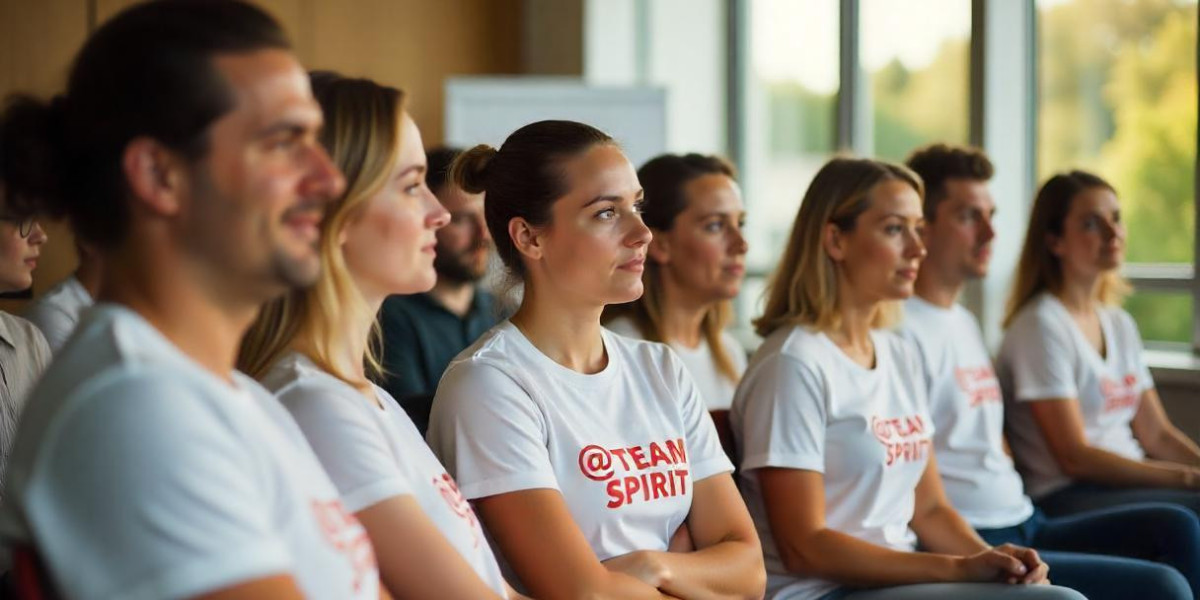Introduction
In the world of custom t-shirts, flat prints aren't the only way to make an impact anymore. Today, textures like puff print , foil , and embroidery are giving designs a new life. They don't just look good - they feel different. That mix of sight and touch can instantly grab attention and make your brand stand out.
In this post, we'll explore how these three techniques work, and why combining them can create t-shirts people remember.
Understanding the Key Texture Techniques
Puff Print – A Design That Pops
Puff print uses special ink that rises when it's heated, creating a soft, raised texture. It's often used in streetwear because it gives designs a bold, 3D effect you can feel under your fingertips. Logos, big text, or graphic shapes all stand out more when they've got that little lift.
Foil Printing – Mirror-Like Shine
Foil printing applies a thin, metallic or shiny layer to fabric using heat. Think gold lettering, silver highlights, or holographic accents. It's great for designs that need a touch of glamor or to draw the eye to certain parts of the print.
Embroidery – Classic Texture and Quality
Embroidery involves stitching thread into the fabric to create your design. It's durable and looks premium, making it a favorite for logos. For extra depth, there's puff embroidery , which uses foam under the stitches so the design sits higher on the surface. It blends the elegance of embroidery with the boldness of a 3D effect.
Why Mixing Textures Works for Branding
More Interesting to Look At
When you combine different textures, you make the design more dynamic. A shirt with smooth foil, raised puff print, and threaded embroidery naturally draws the eye. This helps your brand stand out in a market full of flat prints.
Invites Touch
Textures make people want to run their hands over the design. That physical connection can make your brand feel more memorable — it's not just something they see, but something they experience.
Feels More Premium
Textured prints often give the impression of a high-quality, custom-made garment. When your shirts feel special, people value them more and are more likely to wear them again and again.
Builds Recognition
When your logo has a unique combination of textures, it becomes instantly recognizable. People remember not just how it looked, but how it felt.
Tips for Mixing These Techniques
Layer Your Textures
Use puff print for bold shapes or letters, embroidery for fine details, and foil for shiny highlights. Each element should have its own role in the design.
Pick the Right Fabrics
Cotton is great for puff print and embroidery because it holds up well, while smooth polyester blends work nicely with foil printing. Using the right fabric prevents quality issues later.
Don't Go Overboard
Too many effects can make a design hard to read. Keep it balanced. Let each texture have space so it can stand out without competing with the others.
Taking Care of Textured Prints
Puff Print – Long-lasting if washed inside-out in cold water. Avoid high heat in dryers.
Foil – Needs gentle care. Wash on a light cycle, inside-out, and air dry to keep the shine.
Embroidery – Very durable, though you should avoid snagging the threads during washing.
Taking care of these shirts properly means they'll keep their texture and colors looking fresh for longer.
Real World Inspiration
A streetwear brand used puff print for big lettering, embroidery for a small crest logo, and foil for tiny accents. The result was a shirt that felt like a collectible.
A sports merch line combined puff print slogans with embroidered player names, adding foil edges for a metallic, game-day vibe.
A coffee shop made limited tees with embroidered logos and foil highlights. They sold out in under a week because they looked and felt different from standard merch.
Conclusion
Textures can completely change how a t-shirt is seen and remembered. Puff print adds bold dimension, foil delivers eye-catching shine, and embroidery brings timeless quality. When you combine them thoughtfully, you get more than just a shirt - you create a piece people want to keep and wear.
If you're designing for your brand, think beyond flat prints. Experiment with mixing textures, keep it balanced, and choose fabrics and colors that make each element pop. The right combination can turn a simple custom t-shirt into a powerful branding tool.








